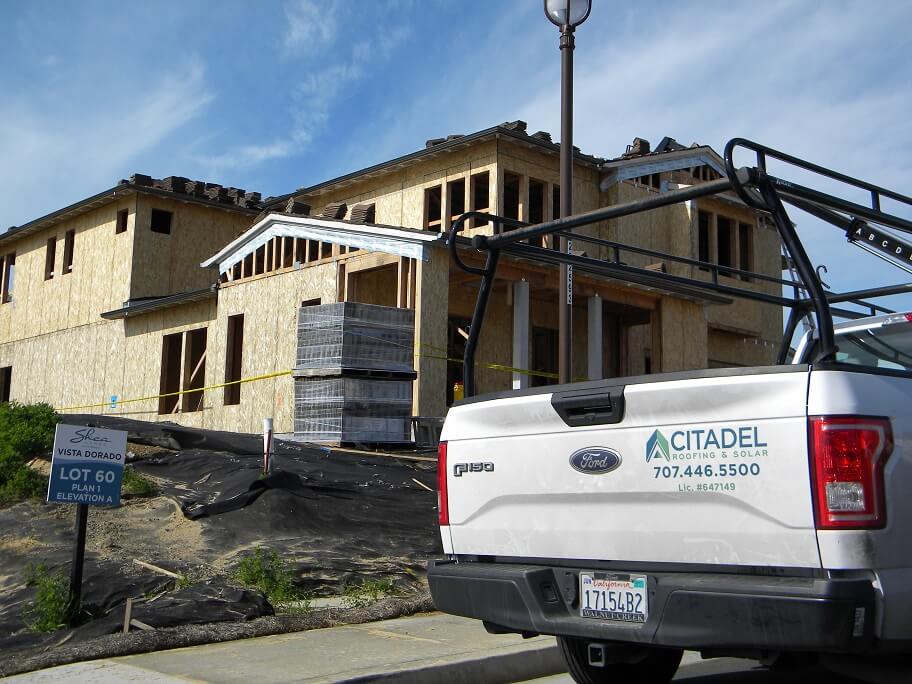A new solar mandate in California, which requires new homes to include solar power starting on Jan. 1, 2020, presents a complex but significant business development opportunity for solar installers. And the opportunity is expected to expand.
The Golden State may be the first in the country to issue such a mandate, but Massachusetts is weighing similar legislation, and many states are considering the concept as they grapple with ways to reach their climate change goals.
Consumers, as well as government officials, are coming on board. A recent poll from CITE Research found that 70% of Americans support a national new home solar mandate. The prospect of this progressive initiative becoming a mainstream trend is great news for solar installers.
Residential solar companies’ business expansion avenues traditionally have consisted of organic growth and ancillary products like maintenance, storage and energy efficiency solutions. The California solar mandate opens up a completely new avenue as home building contractors look for partners to help them incorporate solar energy systems into their new home construction projects.
Those partners will be expected to provide support such as education and training, as well as advice on how best to structure the solar financial transaction between the builder and its customers. Builders will seek solar providers that understand the home construction industry and possess a strong working knowledge of the California building code. In short, they’ll want to do business with solar companies that make this new requirement easier to bear.
What’s Entailed
The mandate requires solar electricity systems to be installed during construction on virtually all single-family and multifamily homes under three stories high, including condos and apartment buildings. Systems will be sized to offset a home’s expected electricity usage.
It sounds straightforward, but partnering with a builder won’t be as simple as installing systems on another company’s behalf, as many installers do today. Home builders will need support, including education about how solar works; how roof pitch and azimuth affect solar production; when and how to integrate solar into the home construction process; training of their sales teams on solar, including equipment and benefits, so they can answer their prospective home buyers’ questions; and post-purchase customer service and support for the new homeowners.
Finances
The California Energy Commission (CEC) estimates the new solar mandate will increase the upfront price of a home by nearly $10,000, which translates to roughly $40 more on homeowners’ monthly mortgage payments. That cost will be offset by electric bill savings of about $19,000 over the course of a 30-year mortgage, or about $80 a month. So that’s easy math for all concerned.
However, the state didn’t mandate or even suggest how that extra $10,000 should be wrapped into a new home’s price tag. Apparently, it will be up to builders and solar companies to work that out. Solar companies will quickly realize that the standard choices for paying for residential solar – lease, loan or cash – become more complicated when another construction company is involved.
Options for the solar piece of a new home’s financial picture will most likely take one of two forms:
- The builder pays the solar company upfront for the solar energy systems and includes the cost in the sale price to its customers, and the banks wrap the solar into the home mortgage.
- The builder arranges for its customers to coordinate directly with the solar installer on a lease or power purchase agreement.
Builder Needs
Today, 15,000 solar systems per year are installed on new homes in California, according to Energy and Environmental Economics on behalf of the CEC. Fast forward to next year, when more than 74,000 new single-family homes are projected to be built in the state, and virtually all of those will have solar on them. That’s an enticing business proposition.
Installers considering going after some of this new market should don a home builder’s hardhat for a moment and think about what they’ll need in a solar partner.
First, they’ll want a partner that is easy to work with and that understands their business. Managing the schedules and performance of myriad subcontractors and addressing homeowner concerns at every stage of the project represent substantial work already. Add solar to the mix, and it’s quickly apparent that the solar company that makes doing business easy is going to win the job. That means a dedicated point person, efficient installations, available product and flexible schedules to accommodate the frequent schedule changes inherent in new home construction.
Reputable builders will insist on quality workmanship from their solar partner. The work of every subcontractor reflects back on the home builder or general contractor. Most California home builders have long histories of serving their markets, and they will not want solar arrays with inferior equipment shoddily installed on their roofs sullying their reputations.
Solar partners also must be knowledgeable about California building code, which is not for the faint of heart. The new home solar mandate was added to the Title 24 Building Energy Efficiency Standards section of the state’s building code in December 2018. But that’s not the only update to the code. Title 24 also includes other new energy efficiency standards that, with the solar mandate, are projected to slash homeowners’ energy usage by 53%. Builders will seek solar installers with a solid understanding of the Title 24 requirements, and how to integrate the solar component into the overall project.
Not surprisingly, many home building contractors are not happy about the new mandate, which makes a complex job even more complex and adds to their project costs. They’ll want to minimize those costs while complying with the solar mandate. The best solar partner will be the company that helps builders integrate solar into their new homes in the most cost-effective way possible.
Aaron Nitzkin serves as executive vice president of Citadel Roofing and Solar in Vacaville, Calif. He has been helping California home building contractors integrate solar into their projects for 16 years. Nitzkin can be reached at anitzkin@citadelrs.com or 707-446-5500, ext. 224.




